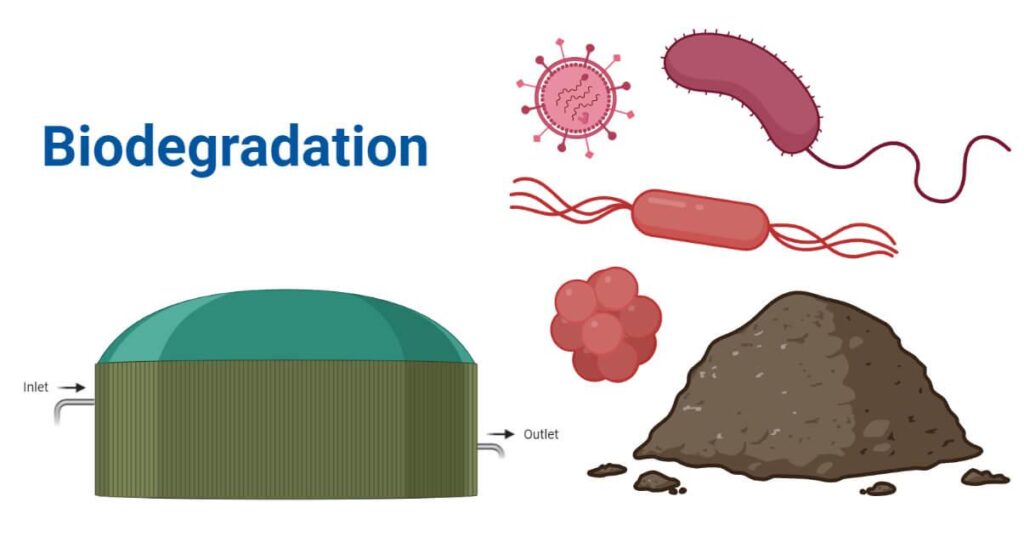Breakthrough in Marine Plastic Degradation: Egyptian Scientists Identify Plastic-Eating Bacteria
A pioneering investigation by marine biologists based in Alexandria, Egypt, has revealed two extraordinary bacterial strains—Gordonia alkanivorans PBM1 and PSW1—that demonstrate a remarkable ability to decompose low-density polyethylene (LDPE), one of the most widespread and persistent plastic pollutants. With plastic contamination escalating as a critical threat to marine ecosystems worldwide, this discovery offers an innovative biological approach to alleviating oceanic plastic waste. Extracted from the Mediterranean Sea’s waters near Alexandria, these robust bacteria could revolutionize eco-friendly waste management practices, fostering healthier oceans for future generations. This article explores the significance of this breakthrough and its potential global impact on biodegradation technologies.
Marine Bacteria Emerge as a Game-Changer in Plastic Decomposition
Recent scientific efforts have spotlighted promising biological agents capable of tackling stubborn plastics like LDPE. The isolation of two novel marine bacterial strains—Gordonia alkanivorans PBM1 and PSW1—from the clean Mediterranean waters off Alexandria marks a significant step forward. These microorganisms exhibit an exceptional capacity to degrade LDPE, which is notoriously resistant due to its chemical stability and widespread use in packaging materials globally.
Laboratory analyses reveal that these bacteria can reduce LDPE’s molecular weight substantially within weeks by enzymatically breaking down polymer chains into simpler compounds that are less harmful to ecosystems. This biodegradation process not only diminishes plastic accumulation but also transforms it into substrates usable by other organisms, effectively integrating synthetic waste back into natural cycles.
The broader implications include:
- Ecosystem Restoration: Employing these bacteria for bioremediation could accelerate recovery efforts in polluted coastal zones.
- Sustainable Waste Solutions: Integrating microbial degradation pathways into existing waste treatment infrastructures may enhance efficiency while reducing reliance on incineration or landfilling.
- Biosynthetic Innovation: Insights from these bacteria’s metabolic mechanisms might inspire development of new biodegradable polymers mimicking natural degradation processes.
This research underscores how harnessing oceanic microbial diversity can contribute vital tools toward combating environmental pollution challenges.
Understanding Gordonia alkanivorans’ Role in Tackling Persistent Plastic Waste
The species Gordonia alkanivorans, isolated from Mediterranean seawater samples near Alexandria, has attracted attention due to its unique enzymatic arsenal capable of degrading complex hydrocarbons such as those found in LDPE plastics. Unlike many conventional microbes unable to metabolize synthetic polymers efficiently, this bacterium employs specialized enzymes that cleave long polymer chains through oxidative reactions followed by mineralization—a process converting plastics into carbon dioxide and water under aerobic conditions.
Adaptable across diverse saline environments with fluctuating temperatures typical of marine habitats, Gordonia alkanivorans thrives where many other microbes cannot survive or function optimally. Its resilience enhances prospects for real-world applications beyond controlled laboratory settings.
Key attributes summarizing its biodegradative potential include:
| Feature | Description |
|---|---|
| Origin Location: | Mediterranean Sea near Alexandria, Egypt |
| Treated Material: | Low-Density Polyethylene (LDPE) |
| Main Biodegradation Mechanisms: | Catalytic enzymatic breakdown & mineralization pathways |
| Efficacy Rate: | Around 60% degradation within 30 days under optimal conditions |
| Tolerance Range: | Able to withstand saline variations & temperature fluctuations common in marine environments |
These findings highlight Gordonia alkanivorans’ promise as a cornerstone organism for developing scalable biotechnologies aimed at mitigating plastic pollution impacts globally.
Strategies To Leverage Marine Microbes For Effective Plastic Waste Management
Given their demonstrated ability to break down persistent plastics like LDPE efficiently, harnessing strains such as Gordonia alkanivorans PBM1 and PSW1 presents an exciting frontier for environmental biotechnology innovation. To translate laboratory success into practical solutions requires strategic steps including:
- Diverse Strain Exploration: Expanding sampling efforts across various oceanic regions will help identify additional potent bacterial candidates with complementary degradation capabilities.
- Cultivation Optimization: Fine-tuning growth parameters—including nutrient profiles, pH levels between 7–8 typical for seawater ecosystems, temperature ranges around 20–30°C—to maximize bacterial activity is essential.
- Pilot Field Deployments: Conducting controlled trials within affected coastal areas will assess ecological safety alongside efficacy under real environmental stresses such as UV exposure or competing microbiota presence.
- < strong >Cross-sector Collaboration: strong > Partnerships among scientists , policymakers , industry stakeholders , local communities ,and NGOs are crucial . Coordinated action ensures integration with existing waste management frameworks while promoting public engagement . li >
- < strong >Awareness Initiatives: strong > Educating citizens about microbial roles against plastic pollution fosters behavioral change supporting reduction at source alongside remediation . li >
- < strong >Investment & Policy Support: strong > Securing funding streams dedicated toward research commercialization accelerates technology readiness levels ; meanwhile regulatory incentives encourage adoption . li >
By embracing multidisciplinary approaches combining microbiology insights with engineering innovations and social mobilization efforts , we can unlock sustainable pathways addressing one of humanity’s most pressing environmental crises .
Looking Ahead: The Promise Microbial Solutions Hold For Ocean Health
In summary , the identification of Gordonia alkanivorans strains capable of degrading low-density polyethylene represents a landmark advancement towards biologically based mitigation strategies targeting pervasive plastic contamination . Originating from Egypt ’ s Mediterranean coastline —an area increasingly threatened by anthropogenic debris —these bacteria exemplify nature ’ s untapped potential when leveraged thoughtfully through science .
As global awareness intensifies regarding microplastic proliferation—with recent studies estimating over 8 million metric tons entering oceans annually—the urgency grows for scalable interventions beyond mechanical cleanup alone . Harnessing naturally occurring microbes offers complementary avenues aligned with circular economy principles emphasizing regeneration rather than mere disposal .
Continued interdisciplinary research combined with proactive policy frameworks promises not only cleaner seas but also innovative bio-inspired materials designed around degradability criteria informed directly by organisms like Gordonia alkanivorans . Ultimately , empowering communities worldwide through education coupled with cutting-edge biotechnology may transform our collective response towards achieving resilient aquatic ecosystems free from synthetic pollutant burdens.
